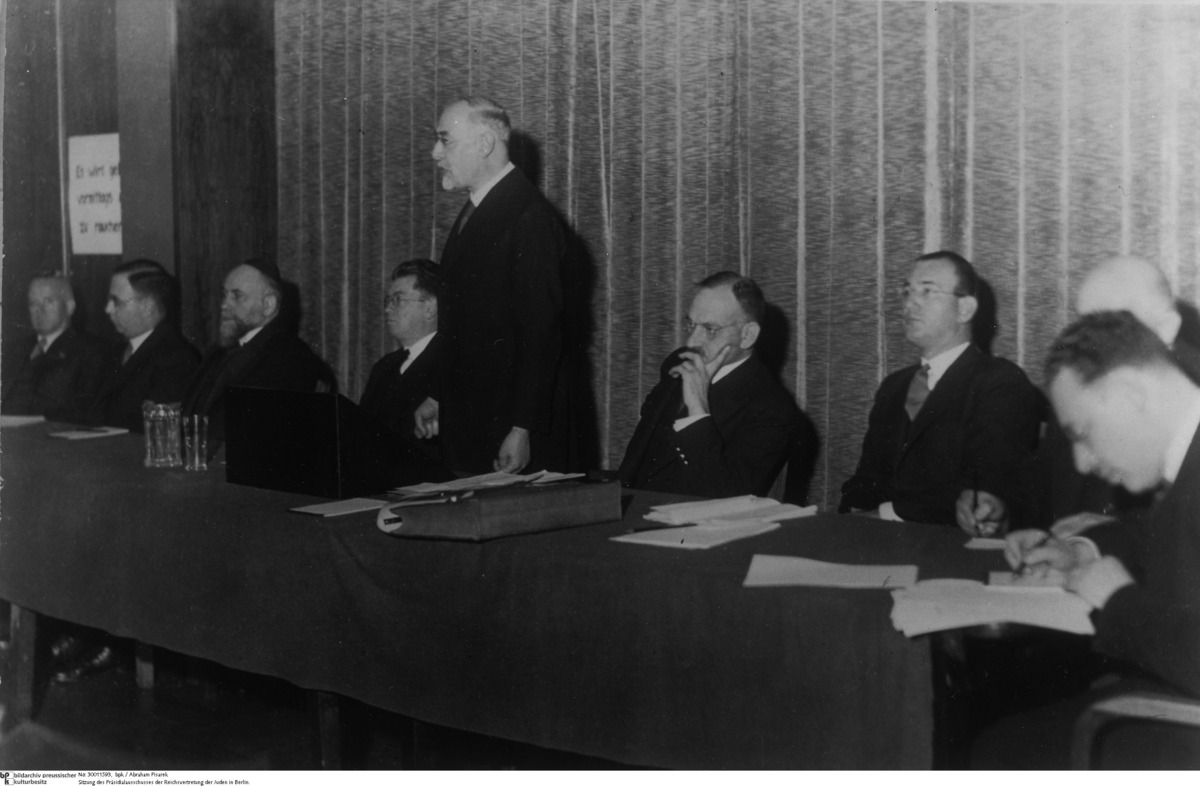Abstract
In September 1933, in response to the antisemitic attitude of the new
Nazi regime, a number of Jewish organizations and associations came
together to form the “Reich Deputation of Jews,” a group that aimed to
represent Jewish interests on a national level. Under the leadership of
Otto Hirsch and Leo Baeck (below, standing), the Reich Deputation sought
to defend the rights of Jews to live and work in Germany, and to move
the Nazi regime toward greater tolerance. Among other contributions, the
deputation coordinated Jewish self-help through welfare initiatives,
worked to create employment opportunities, and eventually also provided
school education for Jewish children. It protested the slanderous
antisemitism of the Nazi press and supported individual Jews in their
dealings with state offices. Although the Reich Deputation's main goal
was to protect the foundations of Jewish life in Germany, it also
provided financial and bureaucratic assistance to those looking to
emigrate. The photo shows, from left to right: unknown; Franz Meyer
(general chairman of the Zionist Union for Germany); Jakob Hoffmann
(rabbi of the Jewish Community of Frankfurt am Main); Siegfried Moses
(president of the Zionist Union); Leo Baeck (president of the Reich
Deputation of German Jews); Otto Hirsch (chairman of the Presidential
Committee of the Reich Deputation of German Jews); Rudolf Callmann
(member of the executive committee of the Central Union of German
Citizens of Jewish Belief); hidden, Heinrich Stahl (chairman of the
Jewish Community of Berlin); unknown.
